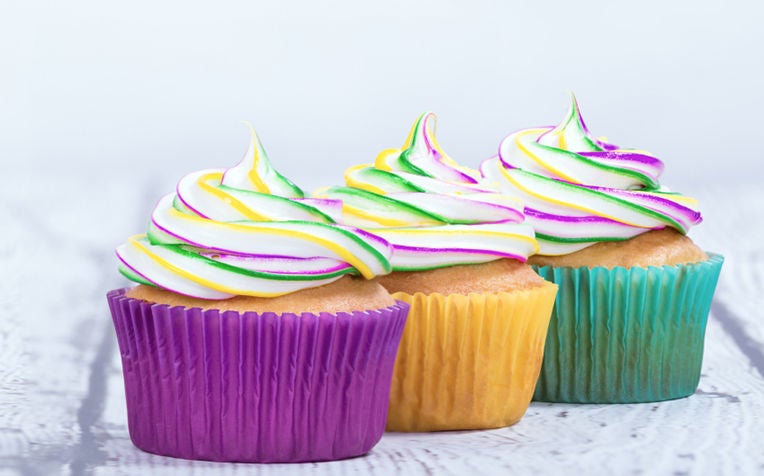
More than sheer grit, it takes a mindset change to deal with sugar cravings effectively
Sugar cravings are all too common. There’s the mid-morning booster, the late afternoon fix and the after-dinner treat, just to name a few. Those who try to cut down or give up sugar have quite a battle on their hands, unless they are armed with good tips and a dash of determination. When dealing with sugar cravings, a mental approach can be empowering, as these cravings affect not just the body but the brain as well.
Why do you crave sugary food items? And how can you curb your cravings? Our experts from SingHealth Polyclinics weigh in.
- AVOID making a list of “good” and “bad” foods
- If you have a list of bad foods to avoid, you will get a sense of deprivation when you see other people eating them, and it may spiral out of control. For example, if chocolate’s on your bad food list, you may cave in and have some, then feel that since you’ve broken the rules, you might as well eat more. But after eating more, you feel guilty and it goes back on your bad food list. It’s a vicious cycle.
- If you have a list of bad foods to avoid, you will get a sense of deprivation when you see other people eating them, and it may spiral out of control. For example, if chocolate’s on your bad food list, you may cave in and have some, then feel that since you’ve broken the rules, you might as well eat more. But after eating more, you feel guilty and it goes back on your bad food list. It’s a vicious cycle.
- Plan healthy meals and enjoy treats in moderation
- Cut down on sugar but don’t deprive yourself entirely of treats, because that can lead to more cravings. If you crave chocolate, have a small piece and leave the rest for another time. Negotiate with yourself, but stay in control. Making a choice and enjoying it at the same time is important.
- Cut down on sugar but don’t deprive yourself entirely of treats, because that can lead to more cravings. If you crave chocolate, have a small piece and leave the rest for another time. Negotiate with yourself, but stay in control. Making a choice and enjoying it at the same time is important.
- Imposing a total ban on sugar may not be the most effective way to curb it.
- Instead, take sensible action to manage it by making conscious choices about what you eat. And remember, it is fine to enjoy small treats from time to time.
- Instead, take sensible action to manage it by making conscious choices about what you eat. And remember, it is fine to enjoy small treats from time to time.
Sugar - Why you crave for it
Sugar, a carbohydrate, is the body’s main fuel source and a necessary part of our diet, but it is important to consider the type and amount consumed.
Sugar comes in two main forms – simple and complex. Simple sugars (monosaccharides) such as white sugar contain only one sugar molecule, lack fibre, and are rapidly digested.
Complex sugars (polysaccharides) contain multiple sugar molecules and can be found in green vegetables and wholegrain foods. They are digested at a slower rate and are usually rich in fibre and nutritional value.
Unfortunately, most of our cravings are for simple sugars, and this may stem from childhood experiences.
For example, when a child gets comforted with ice cream or sweets after a painful tumble, he may associate sugary foods with comfort or reward. Sweet foods can also be associated with fun, enjoyment and relaxation, depending on the experiences.
Sugar cravings also have a physiological aspect. They can be linked to serotonin, a brain chemical produced from the essential amino acid, tryptophan. Serotonin conveys positive sensations of satiety, satisfaction and relaxation. As the body is unable to make tryptophan by itself, it must get it from food. This explains why people crave high-sugar foods when they are feeling down, since sugar increases the production of tryptophan to the brain.
Stress can cause sugar cravings too. It prompts the body to produce more cortisol, a hormone that increases feelings of hunger. “When this happens, some people are likely to seek out high-sugar, high-fat and/or highsalt food. Overindulgence in such foods can lead to excessive weight gain, and increase one’s risk of chronic health problems such as heart disease and diabetes,” said our experts.
High amounts of sugar alone are usually not the cause of such health problems. Rather, it is when high sugar consumption is combined with other factors, including lifestyle habits, family history and regular intake of foods high in fat and salt, that it becomes a risk.
To lower sugar cravings, we advise gradually reducing sugar intake to help the body and taste buds adjust to having less of it over time. Another strategy is distraction from cravings by engaging in enjoyable activities such as watching a favourite TV show or doing physical activities like taking a walk.
And if it is still impossible to resist that slice of cake – there is still one last option. “Share it with a friend, so you can have your cake and eat it too – just less of it!".
Ref: Q15
Contributed by

















 Get it on Google Play
Get it on Google Play